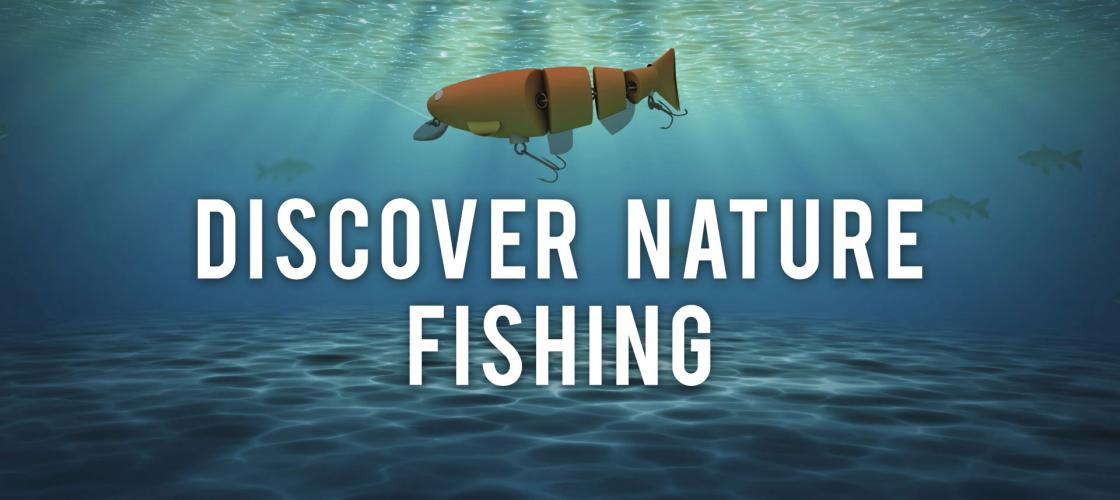Discover Nature — Fishing (DNF) engages students in conservation and aquatic education through classroom instruction and hands-on fishing opportunities.
This program helps students gain the skills and confidence to go fishing on their own. Participants learn about aquatic ecology, fish habitat, and fish identification. They also learn about fishing equipment, casting, rigging a fishing rod, baiting a hook, and proper fish handling.
The program goal is to develop lifetime anglers. Research shows active anglers have greater mental strength, stress management, confidence, and perceived health.
- The DNF instructional unit is appropriate for students in grades 3 through 12.
- To participate, schools must have ready access to a fishing location. The hands-on fishing experience is an integral part of the program.
- To qualify for the teacher kit equipment loan or transportation grant, teachers must complete the 3-hour training with an MDC conservation educator.
- Teachers attending a DNF schools training must have an account on the MDC teacher portal.
- Homeschool groups may receive training and instructional materials but are not eligible to receive a teacher kit equipment loan or transportation grant.
Free Classroom Materials
Any teacher can get a free copy of the instructor guide for Discover Nature — Fishing and the DNF student book, Introduction to Missouri Fishes. Order now!
Get DNF Training
Take a Discover Nature — Fishing workshop to get access to equipment and transportation grants. Find a workshop.
Educators can obtain teacher kits through a three-year loan agreement between the recipient school and MDC. The teacher kit contains the supplies needed to teach the four DNF lessons, including a classroom set of fishing poles, bobbers, hooks, and sinkers.
- Before submission to the DNF program coordinator for final approval and processing, loan agreements require signatures from the lead teacher, school administrator, and MDC conservation educator who conducted the training.
- To maintain active loan status, recipients must submit an annual report every June detailing their DNF instruction and use of equipment. If a recipient fails to submit an annual report, they will be considered inactive, the agreement may be rescinded, and the equipment would need to be returned to MDC.
- Agreement recipients receive one teaching kit and up to 25 fishing poles. If there are fewer than 25 students participating in the program, the number of poles will be reduced to align with the number of students. Both full-size (Zebco 33) poles and smaller 4-foot poles are available.
The transportation grant supplements in-school DNF instruction and must provide a hands-on fishing experience for students. The grant is only available to schools actively teaching DNF and reimburses actual bus transportation costs.
Agreements require signatures from the lead teacher, school administrator, and MDC conservation educator before being submitted to the DNF program coordinator for final approval and processing.
Guidelines for reimbursement:
- Field trips cannot occur until after the school receives the final approved application from MDC.
- Trips must be within 100 miles of school (one-way), and the location must be in Missouri.
- More than one trip may be included for reimbursement; however, the maximum reimbursement cannot exceed a total of $7 per student per year up to $500.
- The school agrees to provide detailed receipts clearly showing proof of payment for approved grant expenditures within 30 days after the fishing activity.
Educating and recruiting new anglers helps conserve and restore Missouri’s aquatic natural resources. This grant support efforts that recruit new anglers through educational and community-based activities. High school fishing clubs that are officially recognized by their school district are eligible for this grant.
Up to $500 per grant is available annually for fishing clubs that participate in activities including, but not limited to:
- Facilitating activities in which club members are teaching and mentoring youth on angling and aquatic education.
- Assisting with MDC fishing events such as kid’s fishing clinics and free fishing days.
- Adopting a Rod and Reel loaner location and providing maintenance on the fishing equipment throughout the year.
- Working on fish habitat improvement projects.

